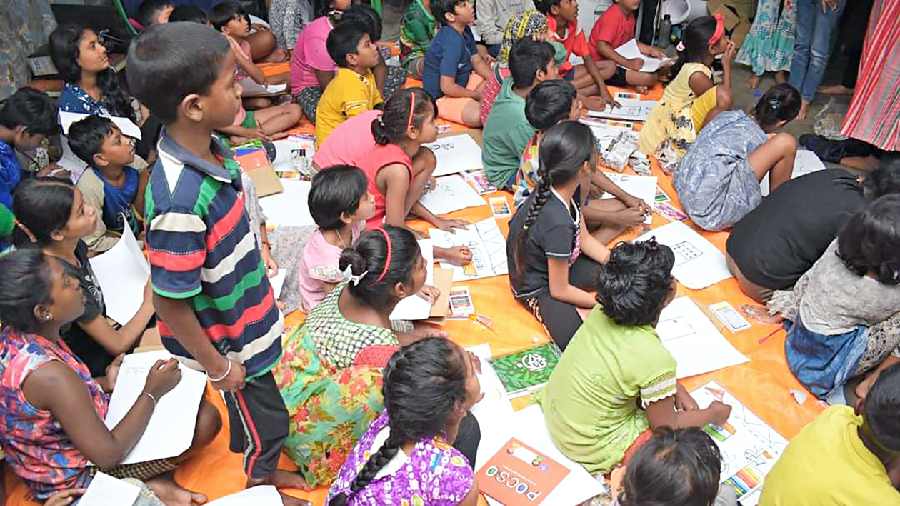- A child should not be married off early but be allowed to play — a 12-year-old girl expressed this thought through a drawing.
- A girl’s face was covered in mesh and she was carrying a baby in her womb. A 10-year-old boy tried to show through his drawing how underage marriage limits girls.
Children between six and 14 years from disadvantaged families living in a shanty in the city attended a workshop, where they learnt about child marriage, child labour, trafficking of girls and boys and Pocso (Protection of Children from Sexual Offences) Act.
At the end of the session, conducted by the state commission for the protection of child rights, in association with Unicef, the kids were asked to draw a picture each depicting what they had learnt.
Some of the drawings were symbolic, serving as a window on the children’s minds.
The session, Hearing Our Voices, was conducted for 50 children in south Kolkata’s Pearabagan towards the end of December. Most of the kids are first-generation learners.
“We need to talk to them and help them understand their rights,” said Sudeshna Roy, chairperson of the West Bengal Commission for Protection of Child Rights.
“They have to know their rights to express their voices,” said Roy.
Their families fail to provide them with knowledge of what is permissible and what is not, said a member working in the field.
On many occasions, their homes or neighbourhoods turn out to be dangerous for them.
For example, a girl was molested by a shopkeeper every day but she did not realise it. There was nobody at home that she could talk to.
Another girl was molested by her cousin at their home. Her mother asked her to remain silent after she told her about her pain.
During similar sessions the commission has conducted in schools, many children shared their bitter experiences, which they had failed to share with anyone at home.
At the end of the session, the older children were given a survey form, which they carried home. It contains questions like how many members in a family are below 18 and whether anyone has been subjected to sexual harassment and child labour.
It also asks whether any of them has attempted to make any complaint.
“We cannot reach every child, but we can use these kids at the session to spread awareness by conducting surveys in their neighbourhoods. If out of 50, even 20 carry out the survey, 20 more people will be benefited,” said Roy.
